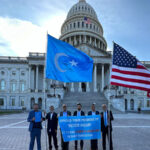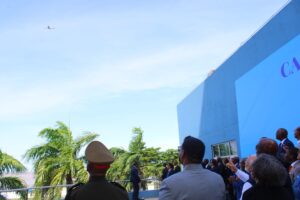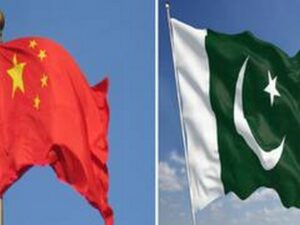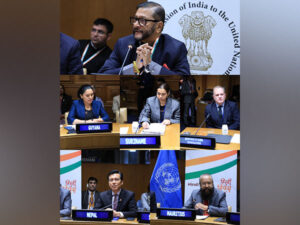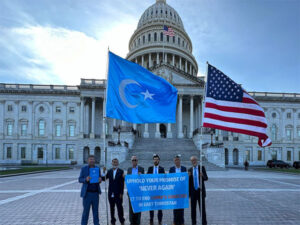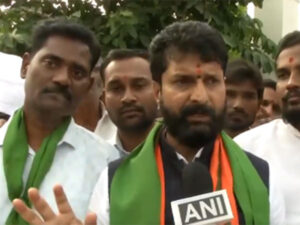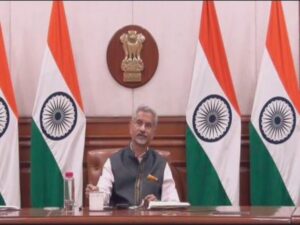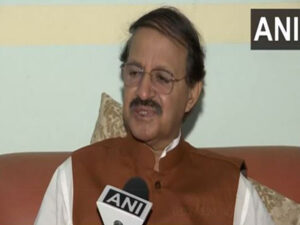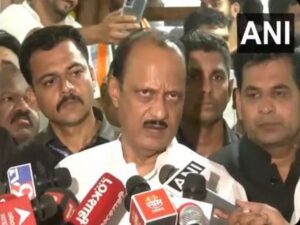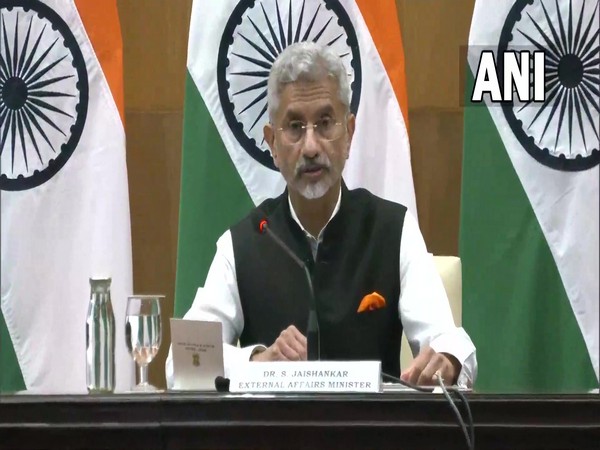
New Delhi [India], March 25 (ANI): Noting that completion of disengagement is necessary for discussions on de-escalation along LAC in eastern Ladakh, External Affairs Minister S Jaishankar has described the current situation “as work in progress obviously at a slower pace than desirable” and said his talks with visiting Chinese Foreign Minister Wang Yi were aimed at expediting the process.
Addressing a media briefing on Friday after delegation-level talks with Wang Yi, the minister said the relationship is not normal due to the large presence of Chinese troops near the Line of Actual Control (LAC) in contravention of agreements.
He said they discussed “bilateral relations that have been disturbed as a result of Chinese actions since April 2020”. Jaishankar said several rounds of commander-level talks between India and China have made progress but “we still have ongoing friction areas”. He said there is a situation where peace and tranquillity in the border areas has been disturbed.
The minister said he and Wang Yi met for about three hours and addressed a broad and substantive agenda in an open and candid manner. Jaishankar said they have been in touch with each other over the last two years, even if there had been no bilateral visits during the period. He said they met in Moscow in September 2020 and then again in Dushanbe in July and September 2021 and also had telephonic conversations during this period with the focus of interactions being the “situation in our border areas”. “Our meeting had led to an understanding on disengagement and de-escalation. The challenge, of course, has been to implement it on the ground.
We have had 15 rounds of talks between Senior Commanders and progress has been achieved on several friction points from the disengagement perspective. This needs to be taken forward since the completion of disengagement is necessary for discussions on de-escalation to take place,” he said. ” I would describe our current situation as work in progress, obviously at a slower pace than desirable and my discussions with FM Wang Yi today were aimed at expediting the process,” he added.
Asked if talks on issues such as education, travel and commerce indicated normalcy in bilateral relations, Jaishankar said so long as there are very large deployments, border situation is not normal.
“No, our relationship (with China at present) is not normal, given the presence of a large number of troops in contravention of the 1993-96 agreements. So long there are very large deployments, border situation is not normal. We still have ongoing friction areas; have made progress in resolving some friction areas including Pangong Tso. Our discussion today was how to take this forward,” he said.
Jaishankar said that large deployments in the border areas is violative of 1993-1996 agreements between the two countries. “Now, we all know that the senior military commanders have been meeting.
The point is that so long as there are very large deployments in the border areas, which are violative of 1993-1996 agreements, clearly, the border area’s situation is not normal. The main point, which I again spelt out at some length in my statement — we have a situation where peace and tranquillity in the border areas have been disturbed,” he said,” answering a query. He said that peace and tranquillity is the foundation for going forward and added that his answer to the question regarding normalcy between the two countries is “no”. “My answer to is our relationship is normal is no, it is not and it cannot be normal if the situation in the border areas is abnormal and surely there the presence of a large number of troops there in contravention of agreements is abnormality.”
He said there is a need to sort out border issues in their entirety. “We have had meetings before with Minister Wang Yi before and there have been talks in parallel — not only the senior military commanders but also we have had, I think, eight meetings of WMCC, which is the working mechanism dealing with this issue. So, they have made considerable progress, I don’t dispute that, in fact, I welcome that, but, they haven’t sorted out the issue in its entirety. So, our effort today is to sort out the issue in entirety and deal with the disengagements, so that, it allows us to look at the de-escalation possibilities.”
Asked if any timeline has been set for disengagement and de-escalation at LAC, he said: “there was no timeline” and a parallel but a separate discussion took place in regard to sorting out the situation in border areas.
Jaishankar raises predicament facing Indian students with Wang Yi, hopes China will take a non-discriminatory approach
External Affairs Minister S Jaishankar on Friday said he strongly took up with the visiting Chinese Foreign Minister Wang Yi the predicament of Indian students studying in China who haven’t been allowed to return to that country citing COVID-19 restrictions. Addressing a press conference here after talks with Wang Yi, Jaishankar hoped that China will take a non-discriminatory approach on the issue since it involves the future of many young people. “I also took up strongly the predicament of Indian students studying in China who haven’t been allowed to return citing COVID restrictions. We hope China will take a non-discriminatory approach since it involves the future of many young people,” he said
Jaishankar said the Chinese Foreign Minister had assured him that he would speak to relevant authorities on his return to China. “Minister Wang Yi assured me that he would speak to the relevant authorities on his return on this matter. He also recognised the particular concerns that medical students have in this difficult situation,” Jaishankar added.
Answering a question on the invitation of the BRICS summit later this year, Jaishankar said, “Chinese Foreign Minister Wang Yi and I discussed, the Chinese chairing of the BRICS. And they spoke about hosting the summit at which they would like…naturally participation of the leaders.”
China hasn’t invited India to Afghanistan meet: Jaishankar
External Affairs Minister (EAM) S Jaishankar on Friday said that China has not invited India to the Afghanistan meeting that is set to take place later in March. China had earlier announced the third foreign ministers’ meeting among the neighboring countries of Afghanistan. The Taliban have confirmed participation in the meeting scheduled to be held later this month. “On the Afghanistan meeting, which the Chinese are convening, I believe… No, they have not invited us,” Jaishankar said during a press conference after holding the delegation-level talks with Chinese Foreign Minister Wang Yi.
Answering a question on Wang Yi’s recent remark at the OIC meeting, Jaishankar said the two ministers discussed that issue and he conveyed India’s hope that China would follow an independent policy in respect to New Delhi. “I conveyed that we hope that China would follow an independent policy in respect to India and not allow its policies to be influenced by other countries and other relationships,” said Jaishankar.
On the issue of terrorism emanating from Pakistan, Jaishankar said, “It did come up, in terms of my sharing with him India’s view of concerns, what we have in respect of Pakistan and of course what were the positions taken during OIC meet.” Answering a question of whether Indo-Pacific featured in the talks, the minister answered that Indo-Pacific did not come up during the talks. (ANI)




